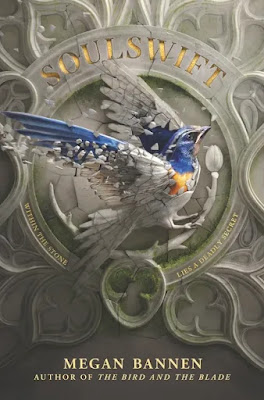 Thomas Perry is the bestselling author of over twenty-seven novels, including the critically acclaimed Jane Whitefield series, Forty Thieves, and The Butcher’s Boy, which won the Edgar Award. He lives in Southern California.
Thomas Perry is the bestselling author of over twenty-seven novels, including the critically acclaimed Jane Whitefield series, Forty Thieves, and The Butcher’s Boy, which won the Edgar Award. He lives in Southern California.
Perry's new novel is Eddie's Boy.
My Q&A with the author:
How much work does your title do to take readers into the story?Learn more about the book and author at Thomas Perry's website and Facebook page.
The title Eddie's Boy operates differently for two kinds of readers. This is the fourth volume of the Butcher's Boy series, which I wrote over nearly forty years. Many readers will be familiar with the book and will know Eddie, the neighborhood butcher who raised the boy, and know that the Butcher's Boy isn't as threatening a name as some characters think. Or is it? For anyone, the title should hint at the fact that this is going to be a story about a man in the present, but that many things that are parts of it happened in the distant past, when this elderly man was a boy. Maybe a reader will come to the thought that even when a man has white hair, he's still that kid who was just starting to figure things out, and still hasn't finished.
What's in a name?
Part of the fun of The Butcher's Boy has always been that he doesn't really have a name. He has only had aliases, mostly ones that Eddie helped him find on tombstones when he was very young. He picked up a few later, a couple of them with the help of the Justice Department, but that's another story. If you're really up to something bad, you pick a name like Michael Schaeffer, which doesn't attract notice.
How surprised would your teenage reader self be by your novel?
The young Tom Perry would be intrigued by the literary aspects of the book--character, dialogue, points of view and time, etc. He would not be surprised by the activities of the underworld figures, because he was growing up in a gangster-ridden region, where kids he knew had, by that time, found bodies in empty fields where he and his friends had played.
Do you find it harder to write beginnings or endings? Which do you change more?
I start a book by thinking about a character until he feels real, and then he stands up and begins to do his job of making trouble. If he surprises me, even better. It's an easy way to start. Endings are more duty than pleasure for me. In reality, a story doesn't end until the observer's heart stops and he closes his eyes and stops listening. In a book we have to choose the spot where we snip the thread. And itmatters whether you stop at the beautiful wedding or the case of Alzheimer's.
The part that usually gets the most revision is the beginning, because every time I read a portion I start with that and see things that are wrong with it.
Do you see much of yourself in your characters? Do they have any connection to your personality, or are they a world apart?
I think that one of the things we're doing when we write a novel is the same as what children do when they play make-believe games. We act out different roles, and invent characters to be. So the characters are all the author to some extent.
What non-literary inspirations have influenced your writing?
I've always tried to see and hear everything that I could, because every bit of it is part of the whole story. Even though we can never tell the whole story, we should know as much of it as we can. I'm afraid that leads to being shallow in one's interests, seeing the world as a tourist instead of a painter or musician. But our dogs always get me up early and I'm always busy until I go to sleep at night. My efforts may not be enough, but that's all there is.
The Page 69 Test: Silence.
The Page 99 Test: Nightlife.
The Page 69/99 Test: Fidelity.
The Page 69/99 Test: Runner.
The Page 69 Test: Strip.
The Page 69 Test: The Informant.
The Page 69 Test: The Boyfriend.
The Page 69 Test: A String of Beads.
The Page 69 Test: Forty Thieves.
The Page 69 Test: The Old Man.
The Page 69 Test: The Bomb Maker.
The Page 69 Test: The Burglar.
The Page 69 Test: A Small Town.
Writers Read: Thomas Perry (December 2019).
--Marshal Zeringue




























